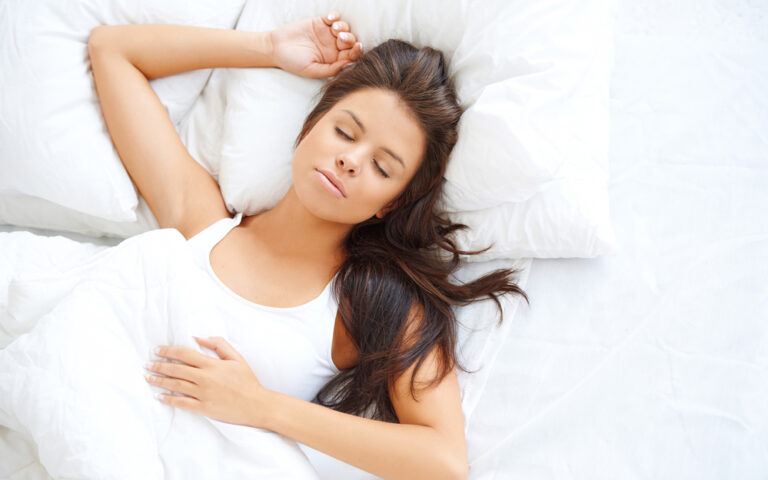We spend one-third of our lives sleeping and a good night’s sleep can keep our overall body and mental health in check. If you don’t get enough sleep during the night, it can affect your mental and physical health. But that’s not all, not sleeping well can come with many negative consequences, but today we’re not going to focus on the negative.
Today we’ll try to discover a new way of sleeping. Sleeping will rejuvenate your body and soul. The type of sleep that lets you wake up refreshed, happy and full of energy. Let’s find out how with our proven tips and techniques to help you sleep better, longer and deeper.
1. Create a Strict Sleep Schedule
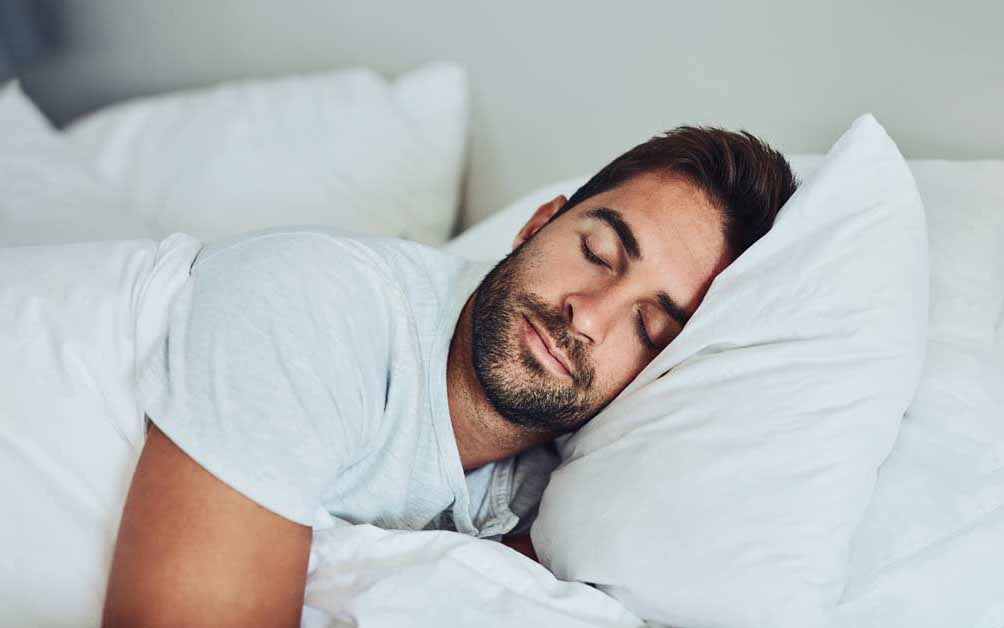
Let’s start with one of the essential rules when talking about sleeping, your sleep schedule. If you are able to create and follow a strict sleep schedule, it can help you immensely with having a healthy sleep cycle through the night.
By using one, you’ll go to bed around the same time every night, wake up one time and take on the day! Following a routine will keep you fresh and active, which is the end goal.
A human body requires 8 hours of sleep to perform at optimal levels, and that’s a rule we would like to follow as well. For example, if you start work at 8:30 am, you will most likely have to wake up somewhere around 7 am to be on time. Therefore, you should be well asleep by 11 pm to get the required rest.
Not everyone can fall asleep right away, which is why going to bed at 10:30 pm should give you enough time to calm your body down. We understand that this can be quite boring, but you have to help your body receive a healthy and deep night’s sleep.
You need healthy sleep habits and going to bed at 11 pm one night, and 3 am the next one won’t help you, and it will only throw your body and mind off balance.
2. Reduce Stress

Stress is another common denominator of why people can’t sleep well at night. You need to try and keep yourself happy, therefore reducing tension and anxiety as much as possible. Sometimes that’s easier said than done, but if certain things stress you out, try not to think about them before going to bed.
Everything can wait till the morning! A simple meditation for 5 to 10 minutes can achieve a peaceful state before going to bed. By doing meditation, you will calm down and be able to go to bed on time. This way, you will experience better sleep throughout the night.
The best way to avoid stress is by doing something pleasant instead. You can spend time with your loved ones or listen to your favourite music before bed. By doing so, you will divert your mind and give it the perfect setup for a calm and relaxed rest.
3. Quit Caffeine
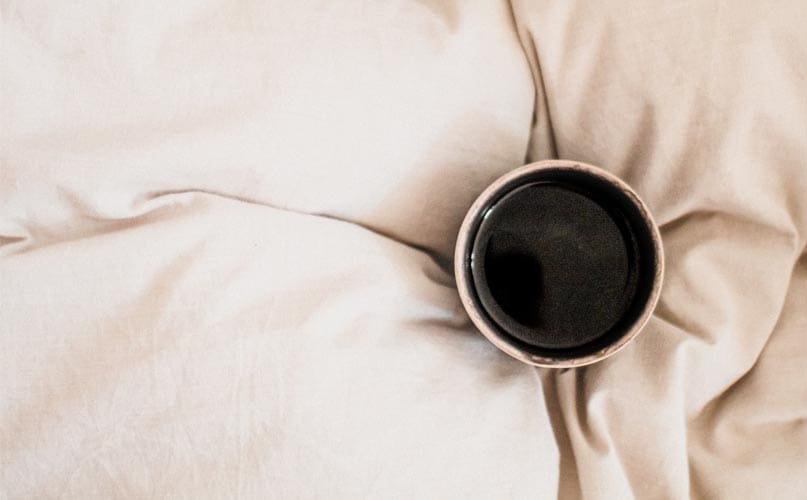
Caffeine has numerous benefits, but just as many risks and effects. Even though caffeine doesn’t affect everyone, it can keep many tossing and turn after half a cup in the morning.
However, if you’re someone that drinks a lot of coffee, this half a cup won’t matter to you, but trying to avoid caffeine altogether in the afternoon and at night can immensely improve your sleep.
A single dose can enhance energy, focus, and sports performance. But keep in mind that caffeine will most likely keep you awake, especially if consumed before bed. A caffeine rush can last a while, and it doesn’t always come from coffee drinks. Sometimes it can be a delicious tiramisu cake or another coffee-infused dessert. Even some teas have a “healthy” dose of caffeine, and if you want to relax with a cup before bed, try ones like chamomile or mint and avoid Earl Gray and black tea.
4. Avoid Naps during the Day
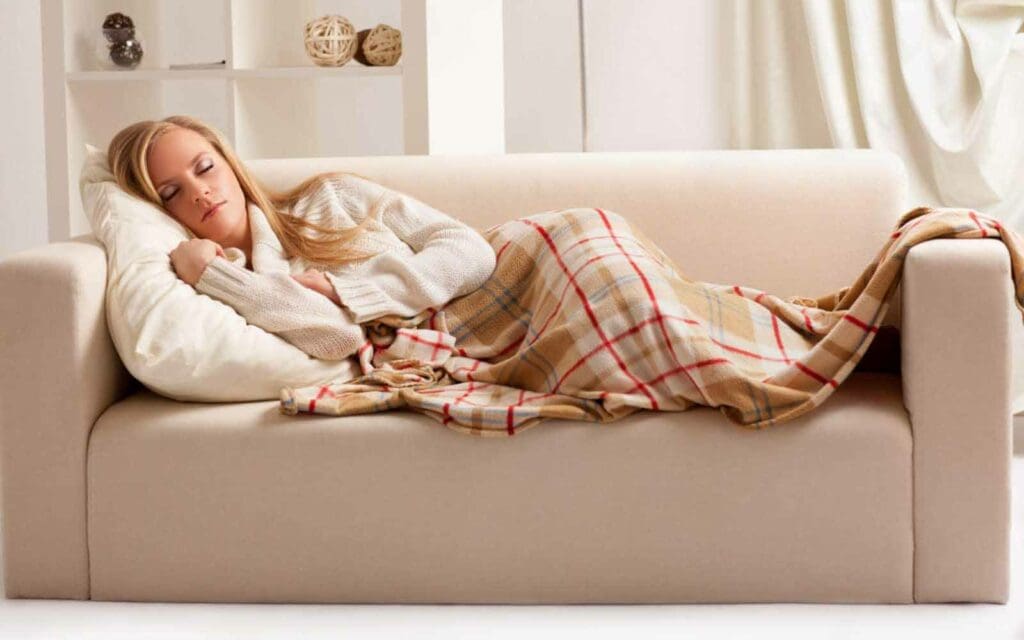
Avoiding daytime naps is essential if you have any trouble falling asleep at night and staying that way. If you followed rule number one and gave yourself the recommended 8 hours of sleep during the night, you won’t feel groggy and tired in the early afternoon.
You will also not be as tempted to take a quick “power nap,” which can turn into over an hour of deep sleep or more. That nap can often prevent you from falling asleep quickly at night since deep sleep can make you feel tired and restless.
Avoiding naps during the day is one of the best ways to prevent being unable to fall asleep. If you’re able to have a strict sleep schedule, your body will have far fewer urges to take a quick nap. The University of Stanford created a study about “Daytime, Attended Sleep”, which talks about the healthy dose of sleep at night and how it can avoid sleepiness and drowsiness during the day.
5. Increase your Physical Activity

Physical activity is another crucial aspect that can definitely improve your sleep at night. By exercising, you burn out t all the excess energy you might build up during the day. Especially if you’re someone that has a desk job and sits in a chair all day.
By having an active lifestyle and exercising, your body releases endorphins (the happy hormone), improving your mood and well being. If you’re interested in this topic, there is a study from John Hopkins about “Exercising for Better Sleep.”
If you don’t know where to start, try running or doing simple exercises at home. Not everyone likes the same physical activities, so you should choose whatever works for you specifically. Maybe you’re a fan of yoga, which is another excellent alternative for better sleep.
Exercising can enhance all aspects of sleep and has been used to reduce insomnia symptoms. However, they should be done during the day and not during the late hours so that you can ensure a good night’s sleep.
6. Set the Room Temperature

Keeping your bedroom cool can be another helpful technique that lets you fall asleep faster and have a better overall sleep. A study reveals that increased body and bedroom temperature can highly decrease sleep quality and increase wakefulness during the night.
Sleeping in a cooler space will not only improve your sleep routine but can also slow down premature ageing and even improve your skin. Isn’t that just great?
Your room’s ideal temperature might be more of a personal preference over anything else, but the suggested option is between 18-20 Celsius. Often temperatures above that are found to warm for most people can lead to tossing and truing.
As we said, this is a personal preference. Still, sometimes humidity can have a very negative impact, which is why if temperature regulation isn’t enough, you can always try a cooling blanket.
7. Resist Heavy Meals Late In The Evening

Consuming a large meal before bed can lead to restless sleep and hormone disruption. Even though you might not take it into consideration, sleeping well might be the least of your problems if you consume a lot of food at night. It can lead to many health and digestive issues, such as severe heartburn or indigestion.
We recommend trying a healthier, lighter meal in the evening, but if you can’t control your appetite, try having a heartier lunch than usual. After it, you might not be as hungry and opt for a lighter dinner like a salad.
There is a study that discovered carbs could be a problem before bed. Therefore a low-carb diet can improve your sleep. However, if you consume carbohydrates 4 or 5 hours before going to bed, it can have a positive impact.
8. Don’t Use Your Smartphone at Bedtime
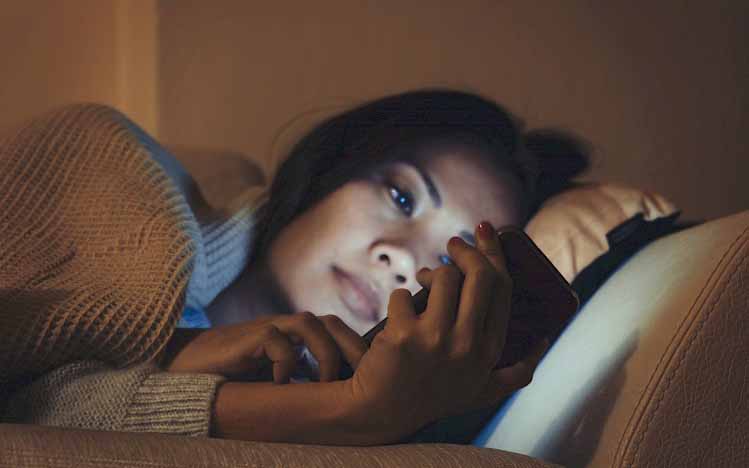
Nowadays, we live in a technology world, which is why it can be hard to spate yourself from your mobile device. Yes, we are all guilty of doing that, but you have to understand that using your phone in bed is hands down one of the most successful methods to become sleep deprived.
We recommend to try and place your device away at night. Playing a game on your phone is a sure way to lose track of time, which will lead to breaking your sleeping schedule. Often time can fly when you’re on your phone. That’s why you have to try and break the cycle!
Avoid the temptation to use it and focus on something calming and relaxing instead.
9. Be Consistent
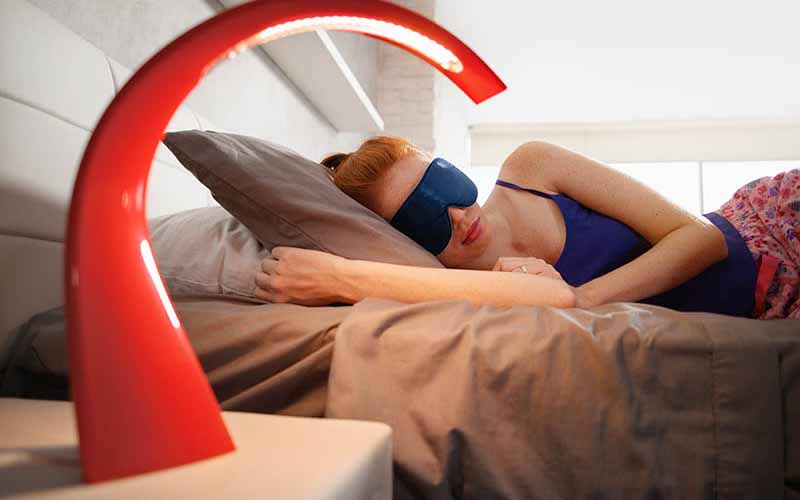
Everybody’s circadian rhythm functions on a set loop that aligns itself with sunrise and sunset, and being consistent with your waking up and sleep times can help you in the long run.
Just as we mentioned above, having the right sleeping schedule is essential. For example, if you change your routine on the weekends and go to bed late, the possibility of poor sleep is almost inevitable. Irregular sleeping patterns can alter your circadian rhythm and levels of melatonin that actually signal your brain to rest.
Understand that waking up and going to bed at similar times can positively impact your sleep, but it will take some time. However, after a few weeks, you might not even need an alarm!
10. Don’t Drink Alcohol Before Bed

Said simply, you should avoid alcohol before going to bed, as it can lead to disrupted sleep patterns. Everyone may want to celebrate an event with a glass of wine, but what you have to keep in mind is that couple of drinks at night can negatively affect your sleep and hormones.
There are numerous studies on the effects of alcohol, but most get to the same point, which is the cause or increase in sleep apnea symptoms, snoring, and disrupted sleep in general.
Another negative of alcohol consummation is that it alters nighttime melatonin production. And as we all know, it plays a crucial role in your body’s circadian rhythm. Don’t drink alcohol before bed because it can also affect the natural nighttime elevations in human growth hormone.
11. Consider a Weighted Blanket
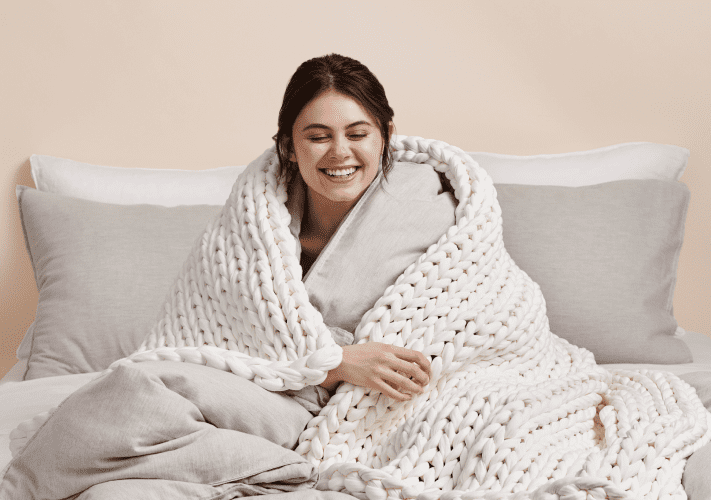
Weighted blankets continue growing in popularity while showing us a whole different world from what you’re usually used to when we talk about sleeping. Having a weighted blanket can also help relieve anxiety, stress, insomnia, and many other sleeping issues.
Many studies suggest that weighted blankets may help people sleep better and provide numerous benefits, including cooling and temperature control when needed. What makes them unique is the deep touch stimulation, which effectively boosts the feel-good hormone called serotonin in your body.
Deep touch pressure therapy is why weighted blankets are so beneficial for both adults and older children. However, they shouldn’t be used on young kids and babies since they can be dangerous in some cases.
A heavy blanket shouldn’t feel like it’s crushing you but feel more like a firm hug, which is why it’s essential to pick the appropriate weight for you as an individual. As a general rule of thumb, the recommended weight is approximately 10% of your body weight. If you get stuck in between two sizes, we advise you to pick the heavier option.
12. Pick the Right Bed & Mattress
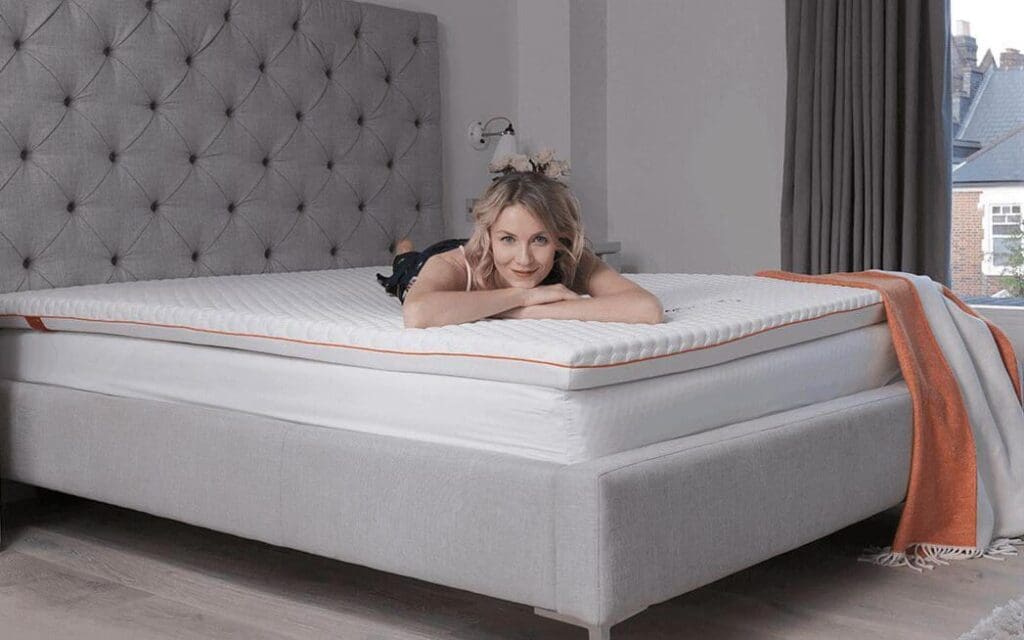
Many people wonder why they sleep better in a hotel, and the answer to that question is quite simple. The bed and mattress quality are most likely better than the ones at home.
There is a study that takes a closer look at the usage of a new mattress. More specifically, for 28 days, people’s back pain was reduced by 57%, shoulder pain by 60%, and back stiffness by 59%.
However, mattresses aren’t the only essential bedding item, so are the bed you put them on. High-quality bedding can enhance sleep, whereas poor quality bedding can lead to increased lower back pain.
Like with a weighted blanket, the best choice for a mattress and bedding option depends on the person and their individual needs. We can give you advice, but you shouldn’t forget to base your choice on personal preference at the end of the day.
Bedding can significantly affect your sleep quality, which is why we recommend getting high-quality products and replacing them when the time comes.
13. Get the Right Pillow
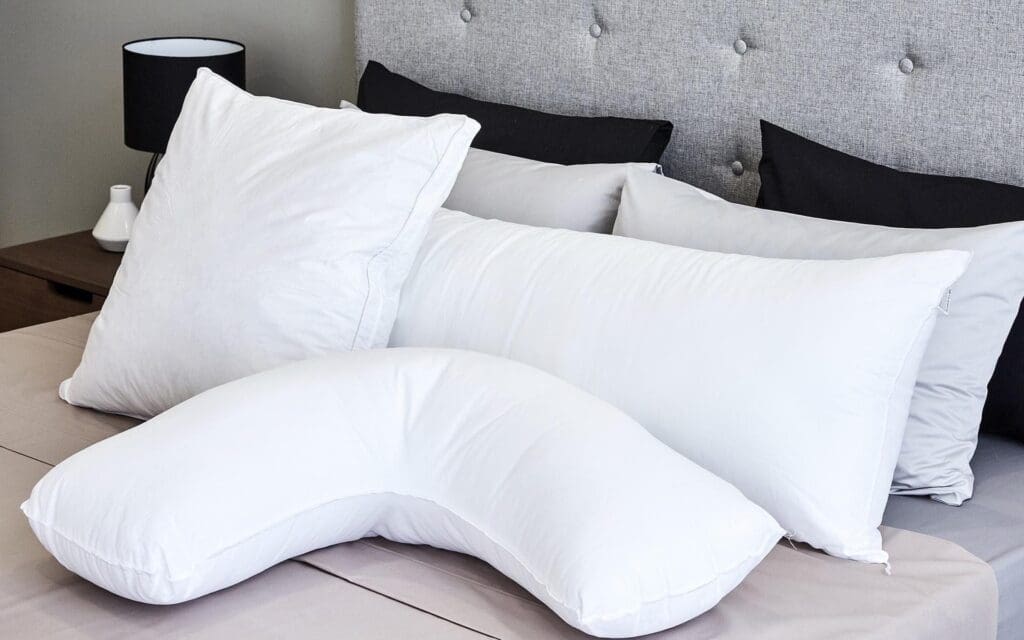
As we already mentioned, finding the appropriate bedding is crucial, and the pillows are no exception. This is also a choice you have to make depending on personal preference, but it’s important to include your sleeping habits.
Before you end up choosing one, think about your sleeping position, desired firmness, size, and filling type so that you can pick an option that will bring you maximum comfort.
If you’re a side sleeper, you should take a look at medium density versions that will give you extra support to keep the neck and head aligned with the body. If you’re a stomach sleeper, your best bet will be a softer and slimmer option that can accommodate your head and shoulders. Lastly, if you’re a back sleeper, you may want to look at harder, firmer pillows to contour your neck and body.
There are specialist pillows that can also greatly benefit your sleep. For example, if you’re a pregnant woman, you might want to order a pregnancy pillow that will contour your belly and ease the baby’s weight off your spine and shoulders.
14. Avoid Working in Bed
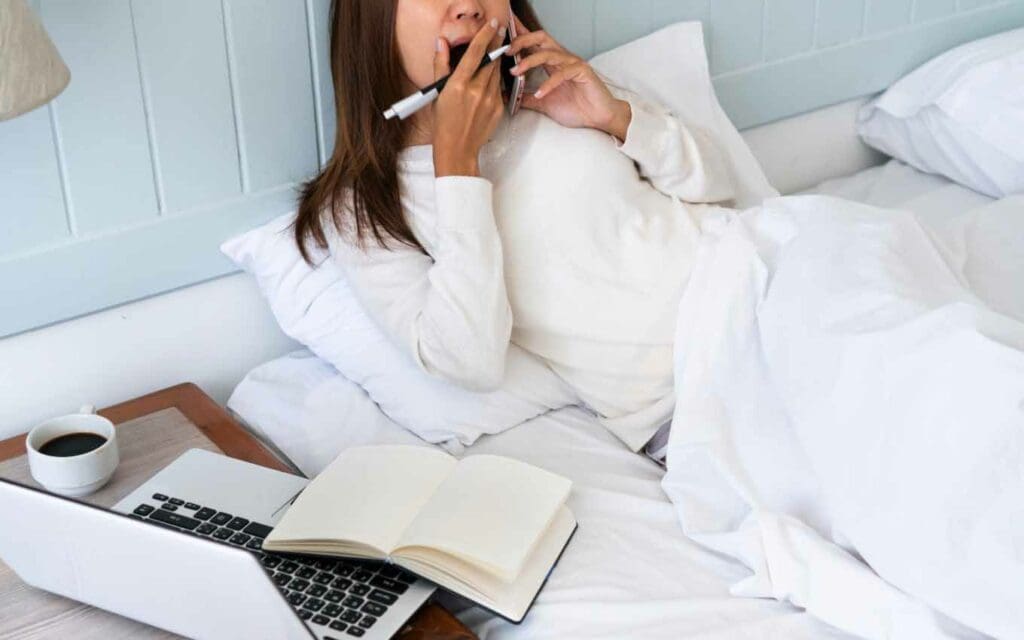
Staying on your laptop at night will reduce the melatonin levels in your body. If you’re having trouble sleeping, this is a trip you shouldn’t ignore. Understand that for you to rest and relax in your bedroom, you have to keep it to bedroom activities only.
Using your laptop right before going to bed means no melatonin. Melatonin is the hormone that, when released, tells your brain and body it’s time to sleep. Therefore, if your melatonin levels are low, your sleep quality will worsen. And if that happens, it will also affect your productivity the next day.
So what’s the best way to go about it? Turn off any electronic devices before bed, don’t stress about work and homework, and try and relax instead.
15. No Liquids Before Bed

This may come as a surprise since drinking water has been repeatedly proven to have several health benefits, but drinking liquids before bed can negatively affect your sleep cycle. Drinking too many fluids before bed means you’ll most likely wake up in need of visiting the restroom.
Large amounts of liquids can lead to excessive urination during the night, which will affect sleep quality and daytime energy. If you’re careful with your fluids consummation, your body will adjust for the night by reducing your urine production, allowing you to get a good night’s sleep.
You don’t want to break the reducing cycle by drinking a glass or two right before bed because it will severely reduce your sleep quality. The best advice we can give you regarding the subject is not to drink any fluids 1–2 hours before bed.
16. Turn Off the Lights
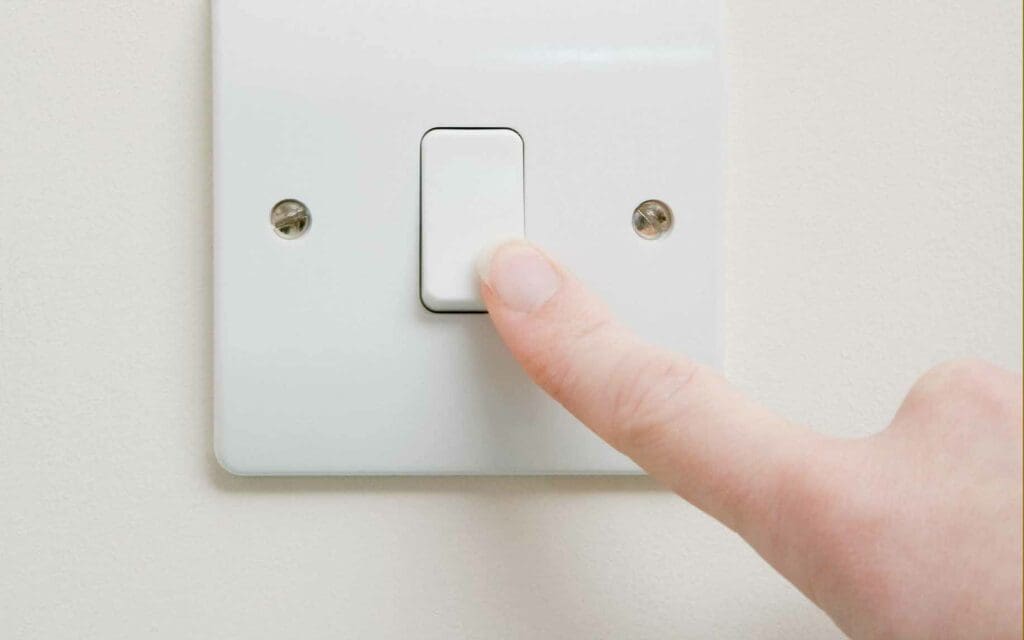
Even though this may sound too obvious, not turning off your lights can be very harmful to your rest. Yes, exposure to light during the day is highly beneficial, but that’s not the case at night. By keeping the light on at night, you’re tricking your brain into thinking it is still daytime.
If that happens, you won’t produce melatonin in enough quantity, which can have a negative impact since it’s the hormone that tells your brain to go to bed.
As we’ve mentioned already, technology isn’t helpful before bed. Therefore the light it emits isn’t either, since it can break your circadian rhythm and prevent you from falling asleep.
17. Take a Bath or a Shower
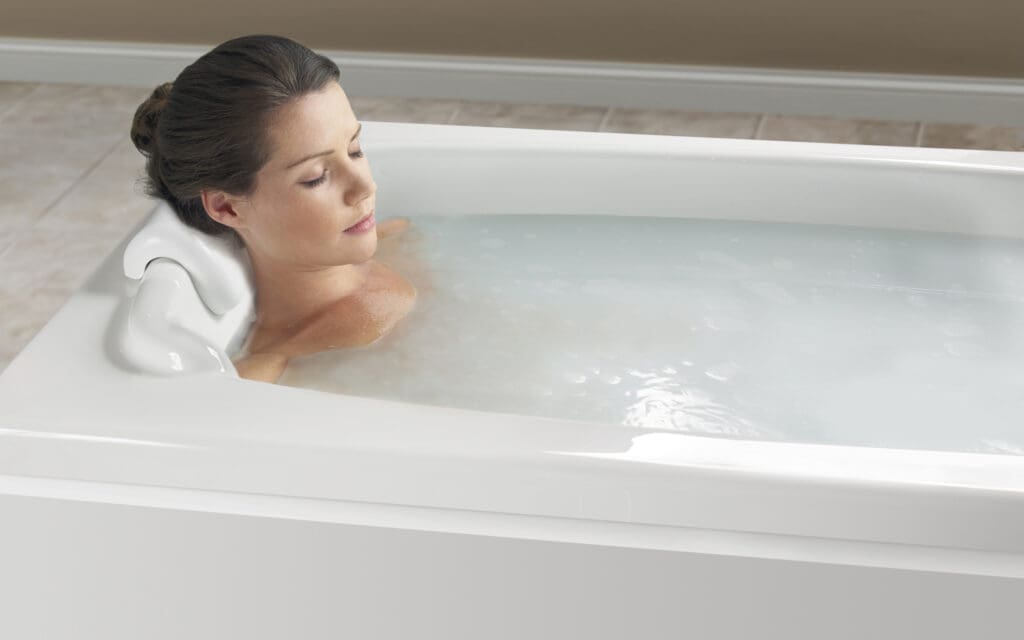
Soaking in your bathtub or taking a shower is always a relaxing experience. Studies indicate that both can help improve overall sleep quality and allow people to fall asleep easier.
The recommended time to take a bath is 90 minutes before bed. Even if you’re not a fan of filling the bath with water, choosing the salts and additives for the bath after some time, you can find it very relaxing and calming.
Your body temperature drops down a few degrees naturally during the night, which is why, by taking a bath, you will raise your internal body temperature a few degrees. By doing so, you increase your chances of going into a deep sleep.
If you don’t have the time or energy to take a bath or a shower, you can bathe your feet in hot water. A study shows that this will also help you relax and improve your overall sleep.
18. Don’t Take Sleeping Pills

While sleeping pills can help certain occasions and conditions, we don’t generally recommend them as a good idea. They aren’t always good for your body, and you can easily get addicted to them.
Even if you think they are not harmful, sleeping pills can still be highly addictive, and most aren’t aware of the numerous side effects and potential dangers. Side effects can vary from mild headaches to gastrointestinal problems, which is something you want to avoid.
Harvard has a study on different sleeping pills and the risks that comes with them that you can take a look at here.
19. Create a Positive Bedroom Environment
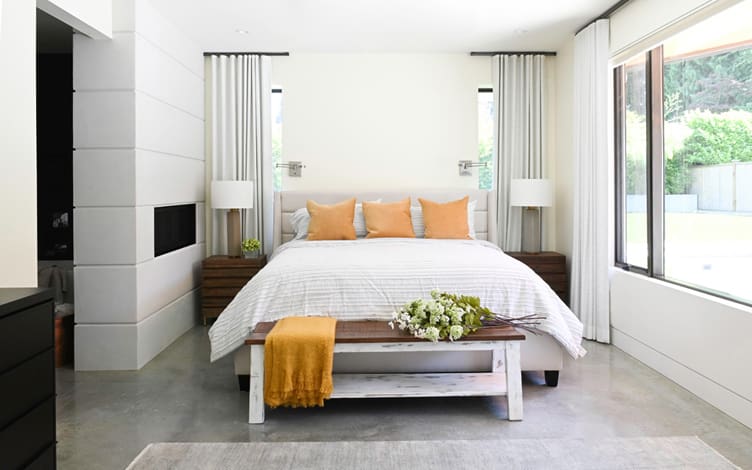
In our opinion, positivity within yourself and around you is the key to a happy and healthy life. It’s a philosophy that you should try to follow in order to create a positive and encouraging environment. We may not put them together, but positivity and stress are heavily related, so you kill two stones with one bird.
By cutting or ignoring all these negative people around you, who always find a way to criticize you and bring you down, you ensure a less stressful life in general. If you follow these instructions, we can pretty much guarantee that you’ll instantly feel better. Therefore, improve your sleep tremendously.
20. Hit the Mute Button
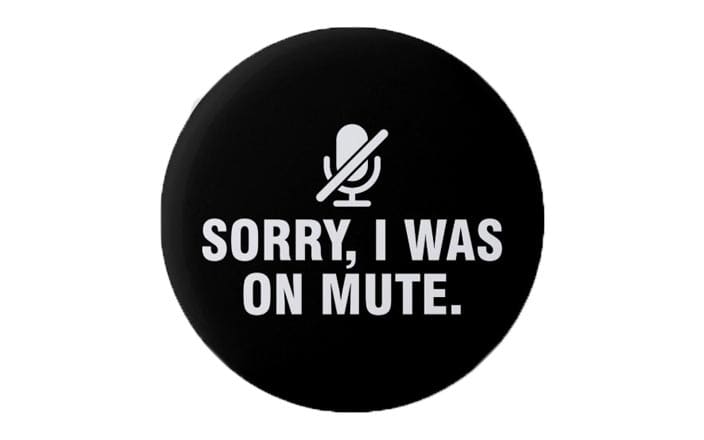
Let’s be honest if you’re reading this article, the chances of you already having trouble sleeping are relatively high. We all have that one friend that can fall asleep in the middle of an ACDC concert, but if you aren’t that person, many noises around you can make it hard for you to go to bed. Most people can be affected by any television sounds, radio or music.
According to the National Sleep Foundation, medium to high-level noises in your room can increase the feeling of restlessness during sleep. What we mean by that is, that even if you’re asleep, your brain can shift between stages of sleep and not rest properly. And that’s something we should all avoid since it can lead to twitching, tossing, and turning during the whole night.
Sound is a factor that can be easily blocked by using earplugs. However, keep in mind that some noises are easier to block than others, and bass is almost impossible to block.
21. Rule Out a Sleep Disorder

If you’re starting to suspect that your sleep problems are getting out of hand, you should go to a doctor and see if you can rule out a sleeping disorder. A professional can check any underlying issues and give you a diagnosis if there is one.
One of the most common sleeping issues is sleep apnea. That causes inconsistent and interrupted breathing for people while sleeping. We want to be as straightforward as possible, and that’s you have to understand that there are thousands of reasons why you might not be sleeping regularly. If you visit an expert, you have a way better chance of finding what is wrong. Don’t postpone your visit because things can get worse!
22. Check Other Health Issues

This might sound like one of the tips above, but it is different enough to be included on this list. The reason for that is, that there are numerous conditions that may not be a direct threat to your sleep or overall health, but they can still affect you and your rest.
We can give you a simple example, and that’s skin allergies. They don’t have to do anything with a sleeping disorder, but they can be irritating enough to trigger uncontrollable itching at night, which will prevent you from getting much-needed rest.
There are many other possibilities such as toothaches, stomache, and heartburn, which are usually non-threatening aches but can still keep you up at night.
23. Try Natural Supplements

We have already discussed sleeping pills and what they can do to your body, but natural supplements must be considered. There are endless options on the market today, but some options work better than others.
Melatonin supplements are a prevalent sleeping aid that improves its quality and effectiveness. There are many studies on taking the said supplement, but no withdrawal effects were reported, which is why they continue to grow in popularity.
Melatonin isn’t the only acceptable option. Some supplements and herbs are proven to positively influence your sleep and can be found over the counter in most natural health stores. Here is the list of those non-addictive and non-drowsy possibilities:
- Magnesium – can improve relaxation and enhance sleep quality
- Ginkgo Biloba – 1 hour before bed, might reduce stress and help you relax
- Lavender – 80 to 160 mg (containing 25–46% linalool) induce a calming and sedentary effect
- Glycine – 3 grams of the amino acid glycine can improve sleep quality
- Valerian Root – 500 mg of valerian before bed will help you fall asleep
- L-Theanine – 100–200 mg of amino acid before bed improve sleep quality
24. No Pets on Your Bed
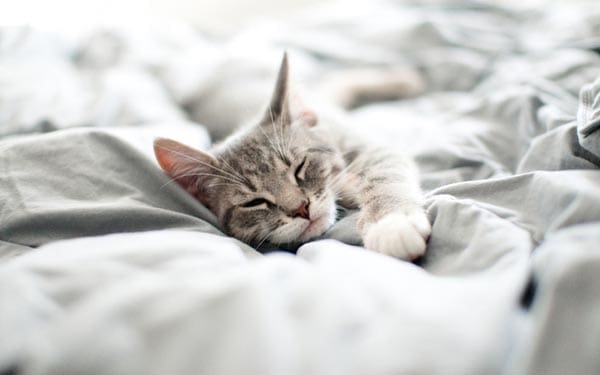
We know that this one is a heartbreaker; however, leaving your pet outside the bedroom is something you have to do. Some pets rarely bother you at night, but others can be huge attention seekers that will continuously wake you up at night.
One of the most attention-seeking pets are cats. They wake up two times every morning, which means you do too. House cats don’t care what time of the day it is, and that’s why it can be hard on people with sleeping issues. You can let them rest in another room or on your balcony in order to sleep and stay that way.
This is a subject with a lot of contradictory information. However, most studies agree that it is generally safe both ways if you and your pet are physically healthy. Some suggest it’s healthier to sleep with a companion, but that depends on many factors.
25. Work on Your Bedroom Environment
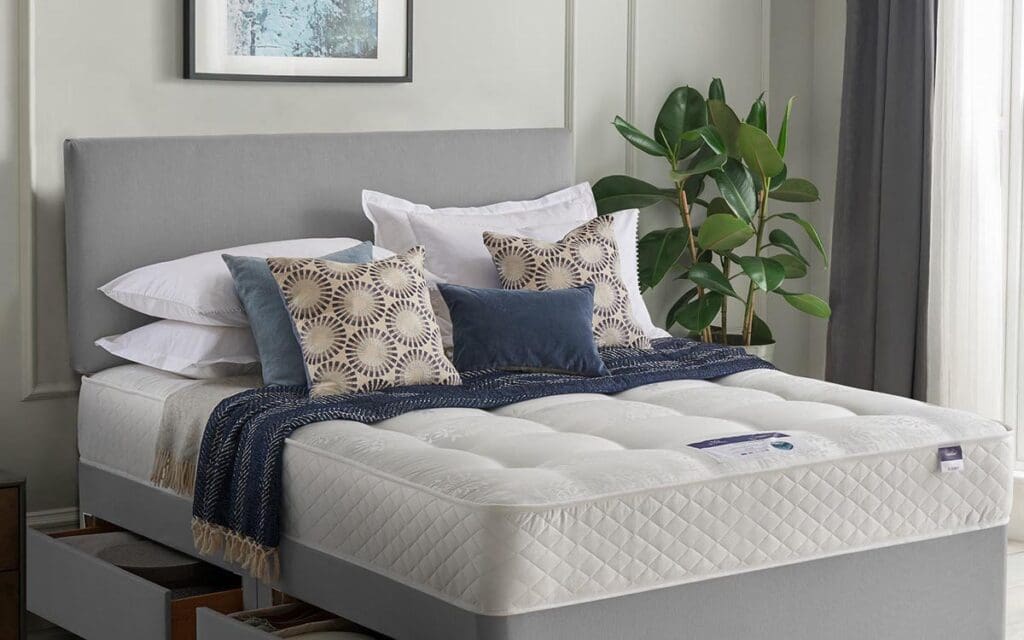
The general goal here is to optimize your bedroom environment by eliminating external light and noise to get better sleep. We know that home improvement can be a daunting task, but we don’t mean you have to gut out the floors or fix the roof shingles when we say improvements.
You can do relatively simple stuff like paint your walls in a lighter color or replace the curtains with a thicker option. Understand that even the simplest of change can vastly influence the way you feel about the room, thus you can relax and fall into sleep easier.
We advise you to work on the noise and lighting of your bedroom first. Even studies prove that a bedroom environment can improve your sleep.
26. Hide the Clock
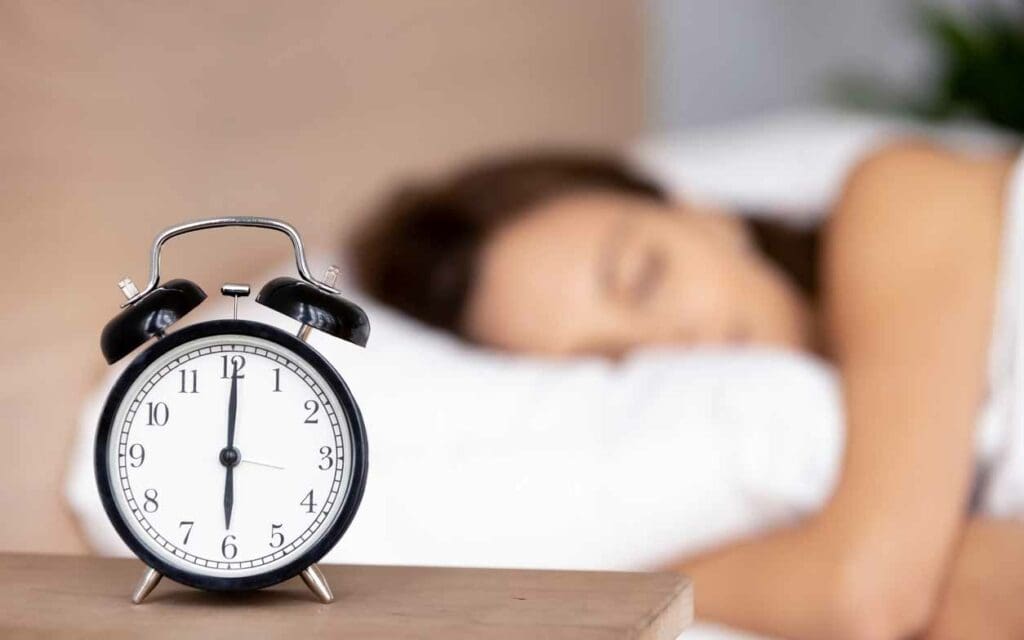
Depending on your watch, there are a few reasons for you to hide it or take it away. If you have a clock with a mechanism and it keeps making noises, your brain might unconsciously start counting the ticking preventing it from dozing off.
Another problem you can find yourself staring into is the clock dials or digits, especially if they are illuminated somehow. Constantly looking at the clock and counting the seconds can mean hours of not sleeping. Watching the clock can trigger anxiety symptoms, which can hinder your ability to sleep.
No matter what choice you make, don’t forget to set the alarm either on the set clock or on your phone so that you can wake up for work or school the next morning.
27. Try A Leg Pillow
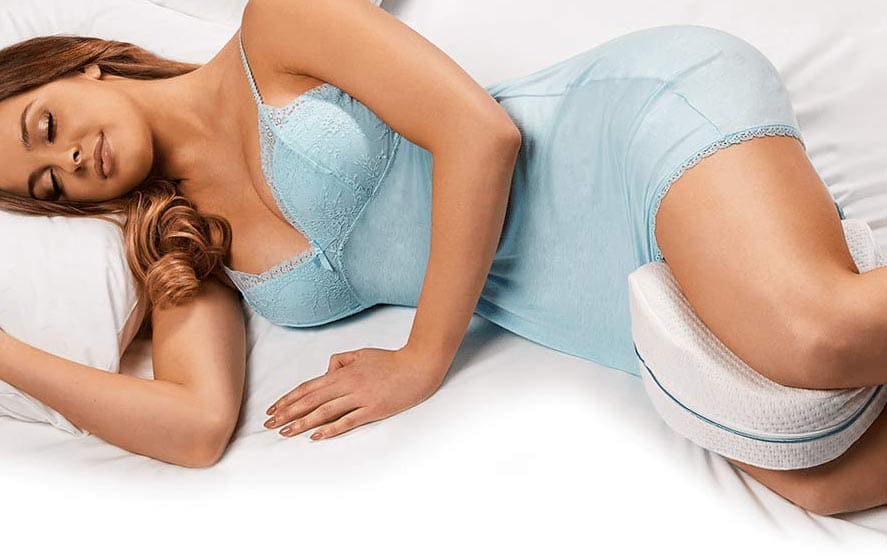
Yes, we did talk about pillows, but this tip is different and definitely not for everyone. However, it can be incredibly beneficial if you have any sort of back pain that’s keeping you awake at night.
The lifesaver we are talking about is the “leg positioner” pillow. An adjustable leg pillow will help you keep your spine straight at night, which will alleviate the pain associated with sciatica(pain in your lower back through your hips and buttocks and down each leg). These are ideal for side sleepers since they can help you improve your posture.
28. Increase Bright Light Exposure during the Day

Natural sunlight or bright light during the day is what helps keep your circadian rhythm healthy. That affects your brain, body, and hormones by aiding them with staying awake throughout the day and telling your body when it’s time to sleep. By raising your light exposure during the day, you improve your energy and sleep better at night.
This tip is quite beneficial to people with insomnia since it reduces the time you need to fall asleep by a whopping 83%. In general, if people get 2 hours of bright light exposure during the day, their sleep efficiency will improve.
We highly recommend getting daily sunlight exposure or investing in an artificial bright light device or bulbs if you or someone you know has sleep issues or insomnia.
29. Reduce Blue Light Exposure at Night
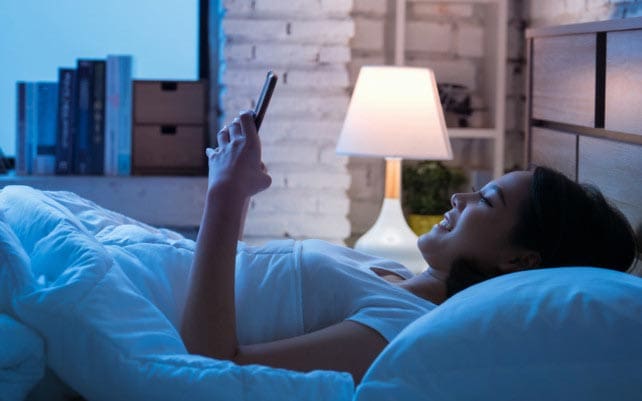
As we just talked about, exposure to bright light during the day is beneficial, but blue light at nighttime has the opposite effect. The reason for that is that due to the circadian rhythm, it tricks your brain to think that it’s still daytime. Therefore, your melatonin levels are reduced, which is no good since they help you relax and get deep sleep.
Blue light comes from electronic devices like smartphones and computers and is the worst option in this regard. The good news is, that there are several methods you can use to reduce nighttime blue light exposure.
Your best bet is to wear glasses that block blue light or install an app that blocks it from both your computer and smartphone. Lastly, you can stop watching TV 2 hours before heading to bed and solve your sleeping issues for good!
30. Try Some Tricks
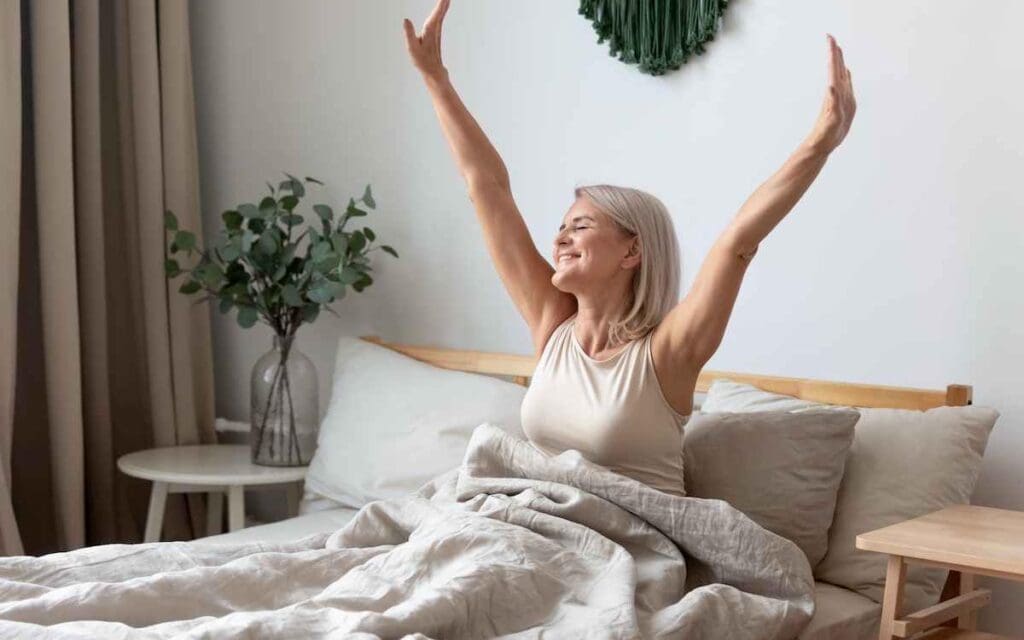
Last but not least, you can try a few tricks to help you fall asleep. If you’re someone who has no trouble falling asleep early in the evening to wake up a few hours later, you’re at the right place. Everyone needs enough hours of sleep to be able to take on the challenges every day has to bring.
In the meantime, you can try meditation because of its deep breathing exercises and progressive muscle relaxation. You can significantly benefit from it. Go to bed quickly and stay asleep for the whole night!
Final Words
After long research, many reviews and studies, we created a list of the 30 most useful and proven tips that exist on how to sleep better at night. We hope that we could at least one step closer to having a great night’s sleep. However, please keep in mind that we are non-professionals in the medical field, and these are only recommendations.
A good night’s sleep is essential to your overall health and well-being, and if you think you might be someone that’s consistently having trouble sleeping without a particular reason, you should contact an expert. Never underestimate sleep and its power!
As always, if any questions regarding the subject were left unanswered, feel free to ask them in the comments below.

